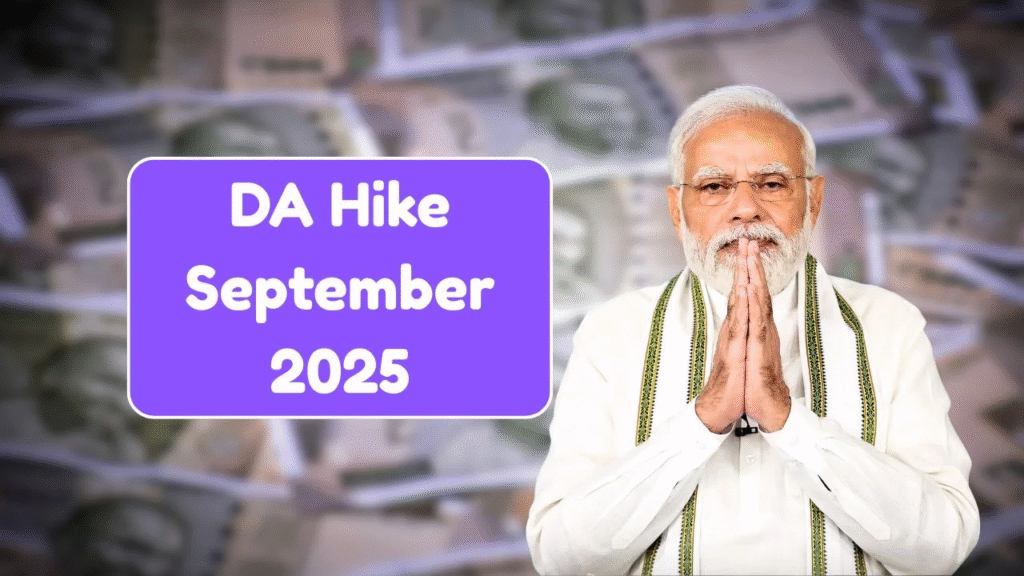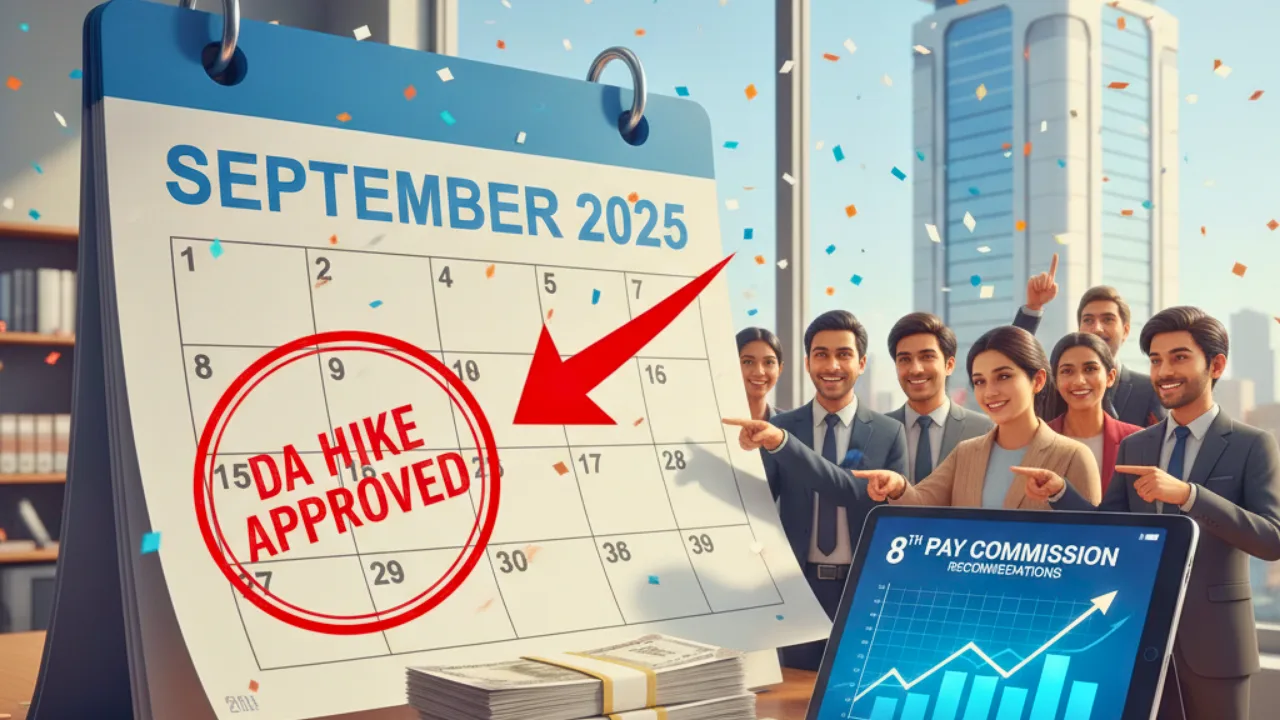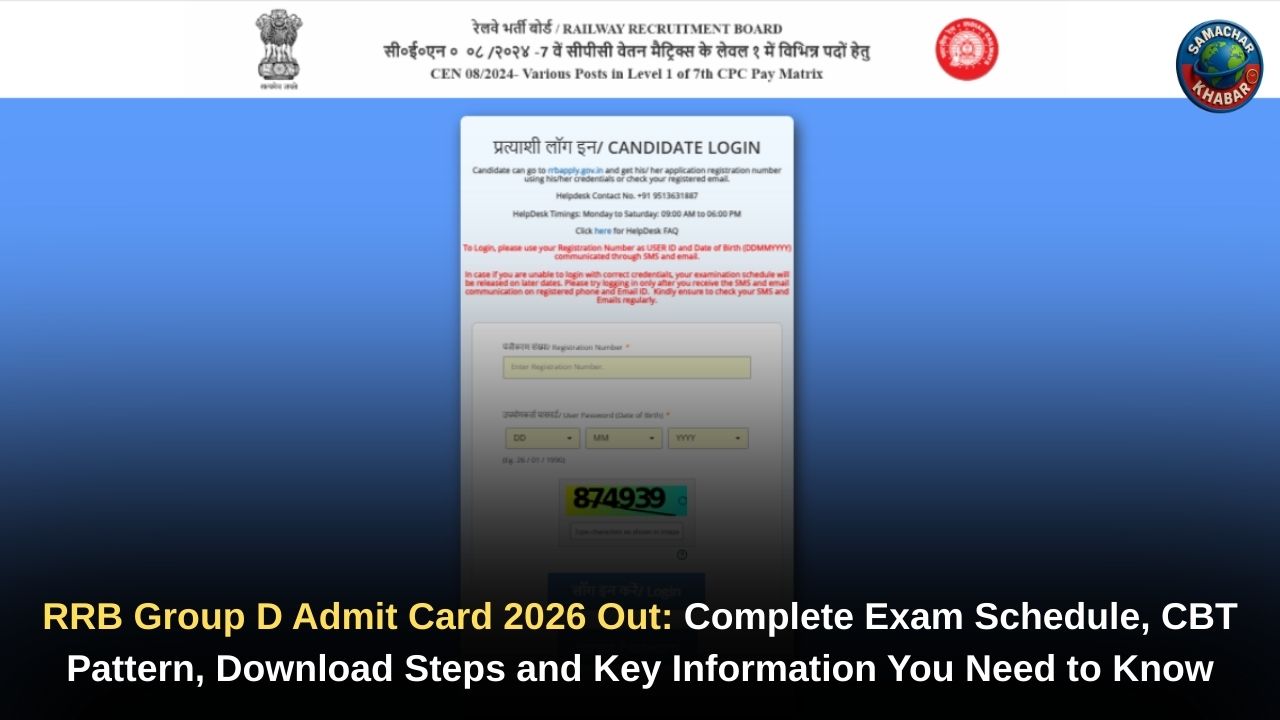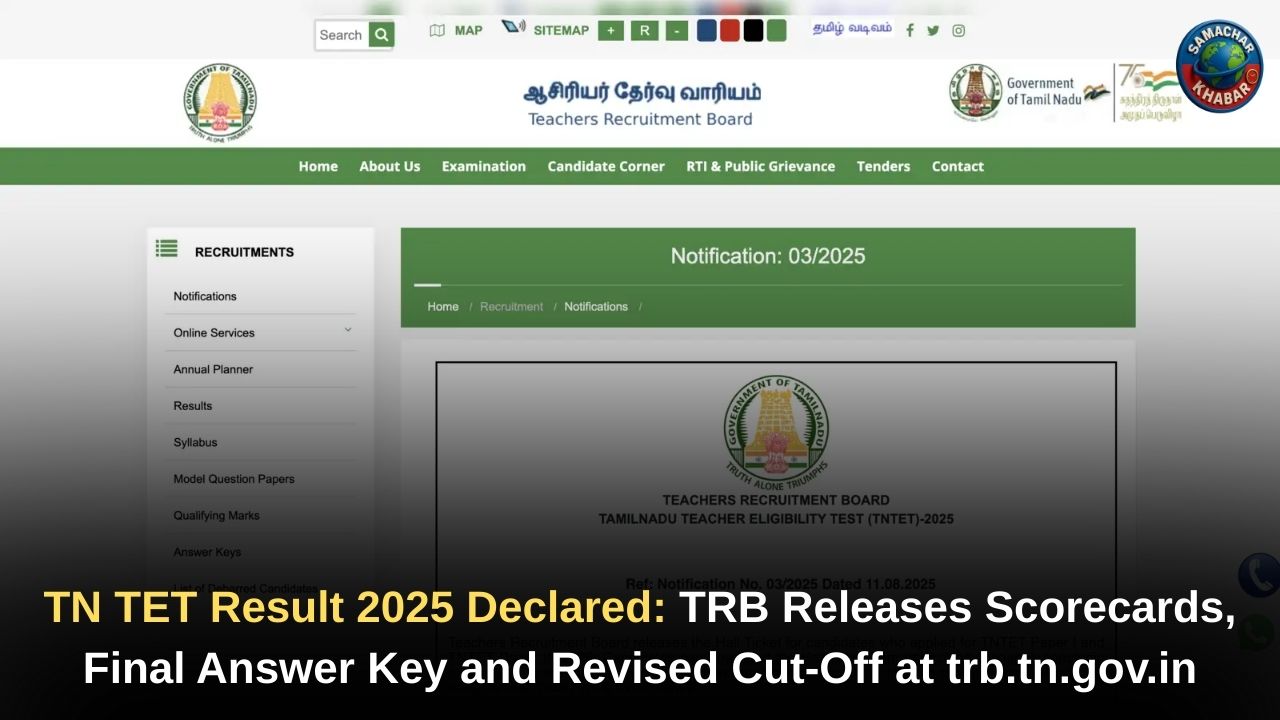DA Hike in September 2025: Central Govt employees may receive a DA hike this September before Diwali 2025, effective from July 1, 2025, along with arrears. The bigger news is that the 8th Pay Commission will be effective from Jan 2026, potentially doubling salaries for over 50 lakh employees and 65 lakh pensioners. A festive gift and a brighter future!
Key Takeaways on DA Hike in September 2025
- Central Government employees are likely to get a DA hike in September 2025, effective from July 1, 2025, with arrears included.
- Current DA stands at 55% and may rise by 3–4%, taking it to 59%.
- The DA hike comes as a festive gift ahead of Diwali, offering relief from inflation.
- The 8th Pay Commission will be effective from January 1, 2026, with benefits for over 50 lakh employees and 65 lakh pensioners.
- Basic salary for Level-1 employees may rise from ₹18,000 to ₹44,000, with a fitment factor of 2.46.
- Full implementation of the 8th Pay Commission may take until 2028, but arrears from 2026 will be paid.
- Past Pay Commissions also followed a similar timeline, with recommendations applied retrospectively.
DA Hike Expected in September 2025: Why It Matters
Central Government employees are waiting eagerly for the announcement of a Dearness Allowance (DA) hike this September, just before Diwali. The hike will be effective from July 1, 2025, and employees will receive arrears along with the revised salary. Discussions are underway about the exact percentage, but experts suggest that the DA may increase by 3–4%, taking the current rate from 55% to nearly 59%.
Even if the government delays the official announcement, employees will still receive full arrears. This system ensures that their earnings remain protected despite inflationary pressures.
Impact on Central Govt Employees and Pensioners
More than 50 lakh Central Government employees and around 65 lakh pensioners will benefit from this DA revision. The festive season, especially Diwali, is considered a time of joy and celebration in India, and this increase is expected to add cheer to households. For retirees, the Dearness Relief (DR) is equally important, as it helps them maintain their purchasing power despite rising prices.

Employee unions are also pressing the government to release the pending 18 months of DA arrears from the Covid period. However, no official decision has been made on that front yet.
The Role of DA in Salaries and Inflation
Dearness Allowance forms a crucial component of government salaries. It is revised twice a year once for January to June and then for July to December based on the Consumer Price Index for Industrial Workers (CPI-IW). This ensures that employee salaries remain aligned with inflation and cost of living.

The upcoming revision for July–December 2025 is expected to be the final one under the 7th Pay Commission. From January 2026, the much-anticipated 8th Pay Commission will take effect.
8th Pay Commission: Implementation Timeline and Benefits
While the 8th Pay Commission is scheduled to be effective from January 1, 2026, experts believe it may take until 2028 for full implementation. This is because the government must first notify the Terms of Reference, appoint commission members, review recommendations, and seek approval steps that usually take two to three years.

However, employees need not worry about losing benefits during this waiting period. Since the effective date is fixed as January 1, 2026, they will receive arrears once the recommendations are officially implemented.
Expected Salary Hike Under 8th Pay Commission
The 8th Pay Commission is expected to bring a significant salary jump for Central Government employees. According to reports, the Level-1 basic salary could increase from the current ₹18,000 to around ₹44,000. This change will positively impact not only employees but also pensioners, who will see a substantial rise in their pensions.
Read in Hindi: DA Hike Central Government 2025 में 3% की बढ़ोतरी? जानें गणना, घोषणा और सैलरी पर असर
A total of more than 1.15 crore individuals, employees and pensioners combined stand to gain from this revision.
Fitment Factor and Salary Calculation Explained
One of the most important elements of the Pay Commission is the fitment factor, which serves as a multiplier applied to the existing basic salary. In the 7th Pay Commission, the fitment factor was 2.57, while in the 8th it is expected to be 2.46.
For example:
- Current Level-6 salary: Basic Pay ₹35,400 + DA (55%) ₹19,470 + HRA (27%) ₹9,558 = Total ₹64,428.
- Under the 8th Pay Commission with a 2.46 fitment factor:
- New Basic Pay: ₹35,400 × 2.46 = ₹87,084
- DA reset to 0% initially
- HRA (27%): ₹23,513
- New Total Salary: ₹1,10,597
This calculation shows how salaries could see a dramatic increase once the 8th Pay Commission is applied.
Why Full Implementation May Take Until 2028
Although the 8th Pay Commission will officially start from January 2026, full application of its recommendations may not be immediate. Looking at the past, it generally takes two to three years from setting up a commission to final approval and implementation.

Therefore, while employees will begin accruing benefits from January 2026, actual disbursement of arrears and full application may stretch into 2028.
Past Pay Commissions: A Brief Timeline
India has a history of Pay Commissions being implemented with retrospective effect. Here’s a brief look:
- 1st Pay Commission: Implemented from July 1, 1947
- 2nd Pay Commission: Implemented from 1959
- 3rd Pay Commission: Implemented from January 1, 1973
- 4th Pay Commission: Implemented from January 1, 1986
- 5th Pay Commission: Approved in 1997 but effective from January 1, 1996
- 6th Pay Commission: Approved in August 2008 but effective from January 1, 2006
- 7th Pay Commission: Approved in June 2016 but effective from January 1, 2016
- 8th Pay Commission: To be effective from January 1, 2026 (full rollout expected by 2028)
This pattern shows that delays in notification or approval do not impact the effective date, as arrears are always provided.
What This Means for Millions of Govt Employees
The upcoming DA hike in October 2025 and the implementation of the 8th Pay Commission from January 2026 together mark a turning point for Central Government employees and pensioners. The DA revision will provide immediate festive relief, while the Pay Commission promises a historic salary boost that could double basic pay for many.
While full implementation may take until 2028, employees and pensioners can rest assured that arrears will be paid, ensuring they do not lose out on benefits. For over 1.15 crore individuals, these changes represent not just financial security but also recognition of their service, bringing both festive joy and long-term stability.
Spiritual Insight: The Unique Knowledge of Saint Rampal Ji Maharaj Ji
According to Tatvadarshi Saint Rampal Ji Maharaj Ji, whatever we receive in life is determined by our destiny. We should not feel inferior by comparing ourselves to others. The Supreme God’s words guide us:
“Rookhi sookhi khakar thanda paani pee,
dekh parai chaupadi mat lalchaave ji.”
This means that we must remain content with whatever God has given us.
The Supreme God Kabir , being complete and perfect, can give us more than our destiny if we sincerely practice devotion. He further advises:
“Sain itna dijiye jaa main kutumb samaave,
hum bhi bhookhe na rahe, atithi na bhookha jave.”
This teaches us to live with contentment, ensure no one goes hungry, and spread the blessings of God with humility and gratitude.
For more spiritual wisdom, visit www.jagatgururampalji.org
FAQs on DA Hike September 2025 and 8th Pay Commission
1. When will the DA hike for Central Government employees be announced in 2025?
The DA hike is expected to be announced in September 2025, just before Diwali. It will be effective from July 1, 2025, and arrears will also be paid.
2. How much is the DA expected to increase in September 2025?
The Dearness Allowance is likely to rise by 3–4%, taking the current DA from 55% to nearly 59%.
3. When will the 8th Pay Commission be effective?
The 8th Pay Commission will be effective from January 1, 2026. Employees will also get arrears for the two years leading up to full implementation, expected by 2028.
4. What will be the new basic salary under the 8th Pay Commission?
For Level-1 Central Government employees, the basic salary may rise from ₹18,000 to ₹44,000. With a fitment factor of 2.46, higher-level employees could see salaries more than double.
5. How many employees and pensioners will benefit from the DA hike and 8th Pay Commission?
More than 50 lakh Central Government employees and around 65 lakh pensioners will benefit, making it a historic revision for over 1.15 crore individuals.


















